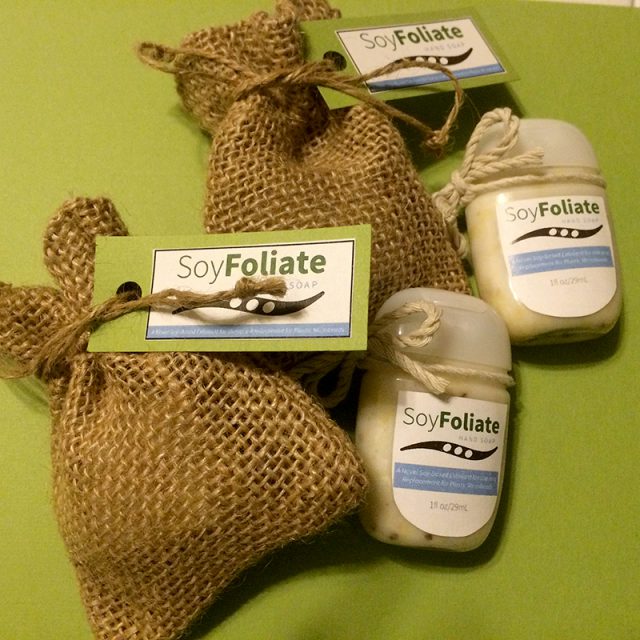A team of four Purdue graduates have developed SoyFoliate, a soy-microbead technology that could serve as an alternative to the recently banned plastic microbeads often found in cosmetic and personal care products.
The team has founded a company of the same name to further develop and commercialize the product.
The product aims to fill a need in the personal care market for alternative microbead technology.
Microbeads are manufactured solid plastic particles commonly used in personal care products for exfoliating.
In 2015, President Barack Obama signed a bill restricting conventional plastic microbeads because of their harmful effects on the environment.
“Soy has several biodegradable and hydrophilic properties that make it a great substitute to plastic microbeads,” said Samuel Lewis, one of the company founders.
“Plastic beads do not absorb water, and soy can over time.”
“To mitigate the problem we mixed our beads with small amounts of oil to prevent water from saturating the beads and decreasing their rigid properties.”
SoyFoliate plans to move forward with prototyping, stability testing and business development, as well as licensing the technology to personal care companies.
Technology used by SoyFoliate is licensed through the Purdue Research Foundation Office of Technology Commercialization.
The company is a member of the Purdue startup class of 2017.
SoyFoliate’s technology received US$20,000 from the 2016 Soy Innovation Competition.
The company works closely with the Purdue Foundry, an entrepreneurial accelerator located in Discovery Park’s Burton D. Morgan Center for Entrepreneurship.
Story by Kelsey Henry from Purdue University










